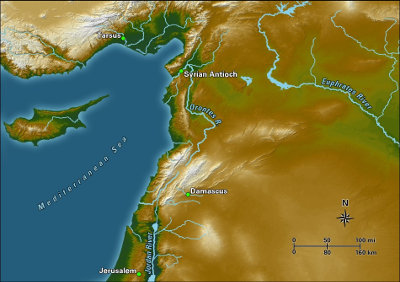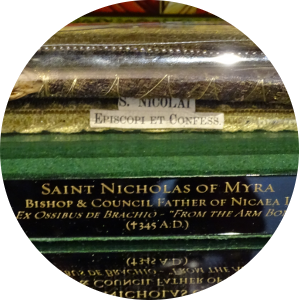Non-Mercenary & Martyr (+ circa 69 - 96 A.D.)
![]()
According to ancient Church tradition, Saint Deodatus of Antioch is said to have been a soldier who served in the army of Imperial Rome. All that can be stated with certainty about his life, is that he was venerated in Antioch for shedding his blood for his Christian Faith the last half of the first century, during the Flavian Dynasty.
It is worth noting that the Flavians, during this historic timeframe, formed an Imperial Dynasty that ruled the Roman Empire from 69 A.D. to 96 A.D. Their three successive familial reigns, spanning a 27 year period, were: Vespasian (69–79 A.D.) and his two sons, Titus (79–81 A.D.) and Domitian (81–96 A.D.). The Flavian Dynasty was unique among the four dynasties of the Principate Era, in that it was only one man and his two sons, without any extended or adopted family. Notably, it was Titus who built the Flavian Amphitheatre (best known today as the Roman Colosseum, pictured), where many first Christians were subsequently martyred as a form of public entertainment.
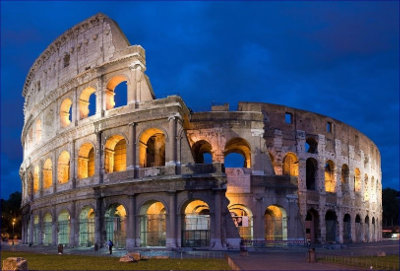
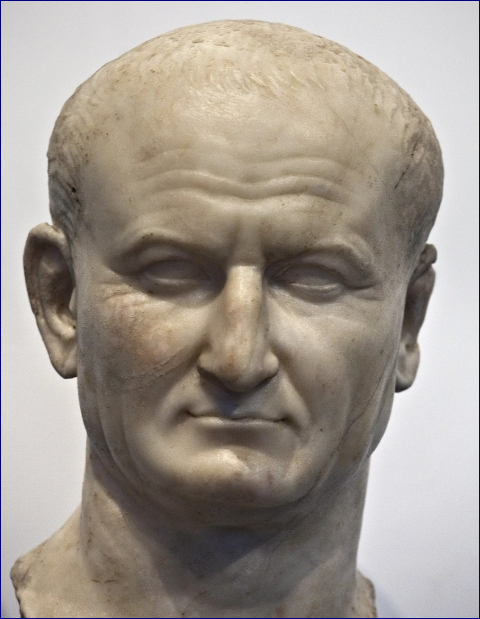
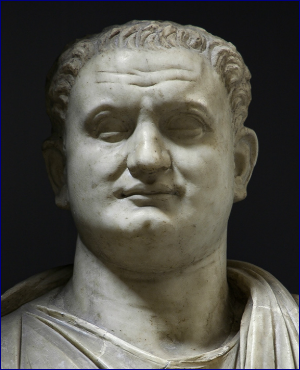
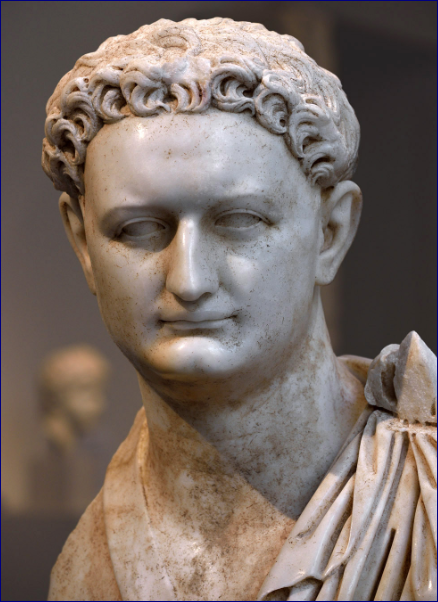
Emperors of Rome during the Flavian Dynasty (pictured left to right, above) Vespasian, Titus and Domitian.
The fact that the name, Deodatus, has echoed down through the centuries to this very day suggests that he must have served as a great source of inspiration for the Christians in Antioch who knew him, particularly at a time when professing their faith often meant certain death. Because it was considered a capital offense for a Roman soldier to profess faith in Jesus of Nazareth, execution was preceded by extreme public humiliation. This commonly took the form of a death march to the place of execution. Due to the fact that Christ’s command to “Love your enemies” (Lk. 5:43-45) was considered “effeminate,” a condemned military man, like Deodatus, was first stripped of his military uniform and then forced to wear women’s clothing. As he made his way through the city streets, former comrades-in-arms along with local townspeople would usually jeer and pelt the accused with garbage, stones and other forms of debris that was handy. Similar to a modern firing squad, execution was achieved by shooting multiple arrows as the victim was secured to a post. It was the kind of death Saint Deodatus would have endured for his unwavering personal commitment to Jesus Christ.
Saint Deodatus represents the enumerable numbers of martyred saints who, although their individual lives are known only to God, preferred enduring public humiliation, imprisonment and the sword rather than deny their faith in the risen Jesus Christ.
Since Deodatus lived in Antioch, it is very likely that Deodatus knew Saint Ignatius of Antioch (+ 107 A.D.), particularly since Ignatius was the singularly outstanding bishop and holy spiritual father of that city.
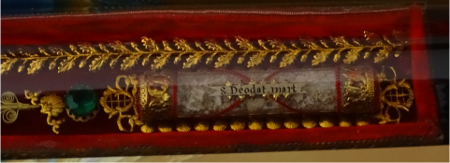
We recently received a first class relic of Saint Deodatus of Antioch (pictured, above) generously donated to our All Saints Shrine by a father and son, Jim & Mike Osella, who reside in suburban Pittburgh, PA. “God grant Jim and Mike many blessed years.”
Saint Deodatus of Antioch, pray for us!
